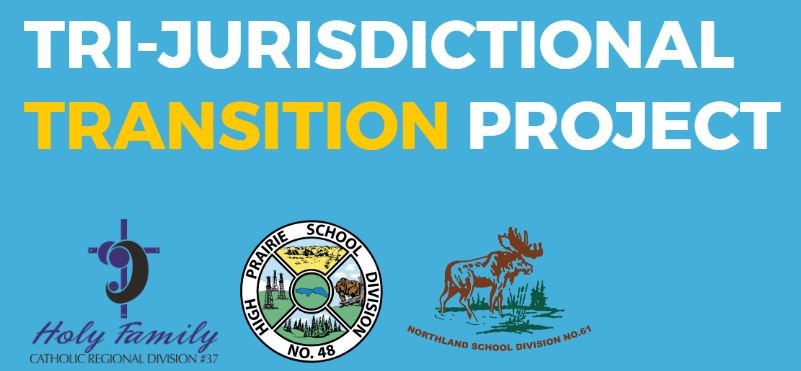Tri-jurisdictional Transition Project showcased at Rural Education Symposium
Posted on March 7

Superintendents for Northland School Division (NSD61), High Prairie School Division (HPSD) and Holy Family Catholic Regional Division (HFCRD) presented a Tri-jurisdictional Transition Project Tuesday (today) at the Alberta Rural Education Symposium in Edmonton. The project, which began in 2013, is primarily focused on improving the transition process for students moving from Northland schools to schools in HPSD and HFCRD.
In year 1, the school divisions hired consultants to facilitate community engagement discussions in Gift Lake, Grouard, Peavine Métis Settlement and East Prairie Métis Settlement. The discussions resulted six identified themes:
- Relationships - Of the six themes, stakeholders cited positive relationships as the most critical to enhancing student transitions.
- Student Achievement and Assessment - Sub-par academic achievement was identified as a primary barrier to smooth transitions for students. This issue is not unique to the north; rather it is problematic for all school authorities. Students who arrive at or above grade level are more likely to graduate from high school while students who transition below grade level are not as likely to experience success. There is a pressing need to guarantee that all students receive the mandated, grade appropriate provincial curriculum. In order to ensure all students are ready to tackle grade level expectations, there must be a continued and heightened focus on instructional leadership beginning at the jurisdiction level.
- Cross-Jurisdictional Collaboration - The need for collaboration between feeder and receiving schools was made apparent. Staff in all three jurisdictions voiced the need for joint, job-embedded, practical professional development opportunities. Student assessment was mentioned first and foremost. Subsequent common professional development relative to the complexities of educating students in northern rural communities was also mentioned.
- Orientation Practices - Planned, defined, purposeful orientation initiatives were cited by many stakeholders as important to ensuring smooth transitions for all students. A variety of initiatives were mentioned including: first-day orientation, week-long orientation with shifting emphasis from curriculum to more generalized information regarding routines, expectations, and relationship building, formal and informal visits by receiving school staff to feeder communities and vice-versa, as well as tours and information nights.
- Transportation - Transportation was mentioned by all stakeholders as an area of concern relative to smooth transitions for students. Students who transition from outlying schools to schools in High Prairie face daily and often lengthy bus rides. Many students interviewed spoke about their frustration regarding early morning bus pickup; some as early at seven a.m.
- Communication - Critical to all themes is the area of communication. Stakeholders believe that communication is vital and many indicated a need for improvement.
Following the community engagement discussions, NSD61, HPSD and HFCRD have been working together to develop common language for student assessment, land-based learning opportunities, professional development for educators and student engagement. These initiatives will be supported by a grant NSD61, HPSD and HFCRD received from the Alberta Healthy School Community Wellness Fund.


